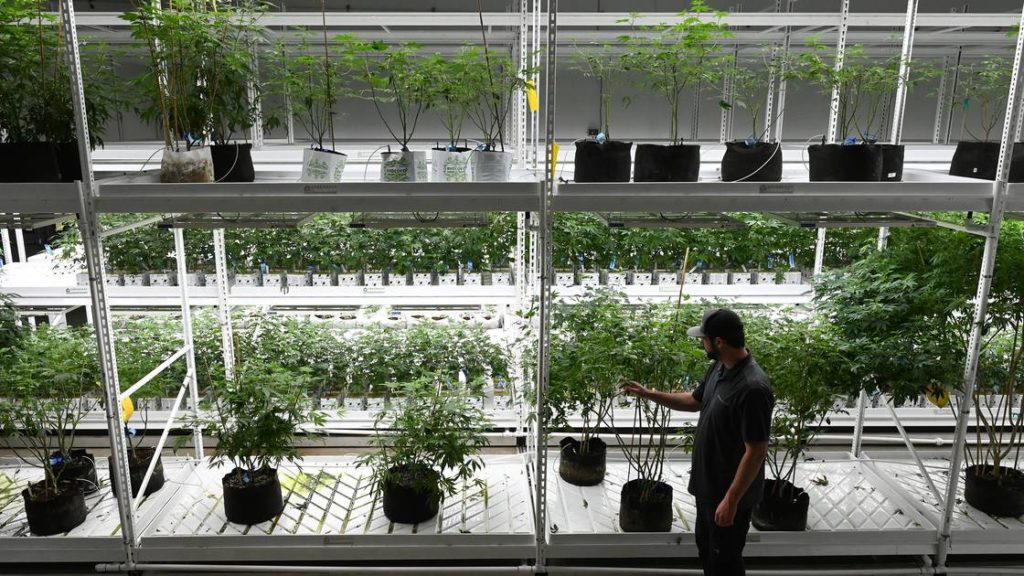Evan Levinton, co-owner Enlighten Alaska, walks through the cannabis vegetative room where infant plants and mother plants were growing at the cultivation facility in Midtown Anchorage on Monday, Nov.
Rosin is a concentrated extract, made by freezing live cannabis plants, breaking them down in a bath of water and ice, then using heat and pressure to squeeze out all the flavors and psychoactive ingredients into a glob about the size of an M&M.
But unlike other concentrates, the cannabis plant is never dried out, and so retains organic compounds and flavors lost in other refining processes.
It’s not only a new item for Enlighten to produce, it’s part of an entirely new business venture into manufacturing its own concentrates and edibles.
Alaska’s pot industry has structural elements that are shaping it differently than more populous markets in the Lower 48.
In recent years, other states’ industries have been undergoing aggressive consolidation, with big, highly capitalized multi-state corporations gobbling up cultivation and retail businesses.
This is not the case in Alaska, with hundreds of independent businesses are licensed to cultivate, manufacture, and sell cannabis .
“If I had a friend who came to me and said, ‘hey I’ve got a million bucks, I’m gonna open a marijuana business.’ I would tell them invest it somewhere else.
“I honestly did not foresee this many retail licenses in Anchorage.
According to a recent article in Politico, Alaska has more retail businesses per capita than any other Western state: 20.3 licensed dispensaries per 100,000 residents.
There are pristine storefronts in downtown Anchorage, a log cabin on Kalifornsky Beach Road, a refurbished Chili’s restaurant in Fairbanks, even a shop in a Connex container on the main road in Bethel .
Much to the consternation of cannabis connoisseurs, customers continue to equate stronger weed with better weed, a fallacy aficionados in the industry say amounts to believing a highly alcoholic IPA beer is inherently better than a less potent lager just because it is more intoxicating.
Chris Giddings holds a jar of CO2 extracted cannabis oil from the OKGB strain as he speaks with Enlighten Alaska co-owner Evan Levinton at the cultivation facility in Midtown Anchorage on Monday, Nov.
“That’s a machine that you put all your doobies in,” Levinton said, showing off how it can produce 100 pre-rolled joints in a minute.
From when the company signed the lease on this warehouse in 2019, through the elaborate build out the facility, it took them nearly two years to finally bring their first cannabis crop to market last April.
Like other sectors, the cannabis industry is having trouble finding enough workers to meed its needs.
Evan Levinton, co-owner of Enlighten Alaska, with cannabis mother plants at the family-owned cultivation facility in Midtown Anchorage on Monday, Nov.
Though Levinton had experience growing cannabis and refining it into specialty products, none of it compared to the scale the business is working at, particularly when small mistakes or inefficiencies can eat away already-thin profits.
The number of cannabis businesses that have shuttered since the industry began is racking up.
Similar to companies in the Lower 48, cannabis businesses in Alaska have to set up in properties that are owned outright, not by a federally regulated bank.
According to Kole, Alaska’s industry is not consolidating or conglomerating at the pace that many Lower 48 markets are.
There is all kinds of tertiary work that cannabis businesses depend on, but are outside of the regulatory strictures governing growing, manufacturing, and selling product.
